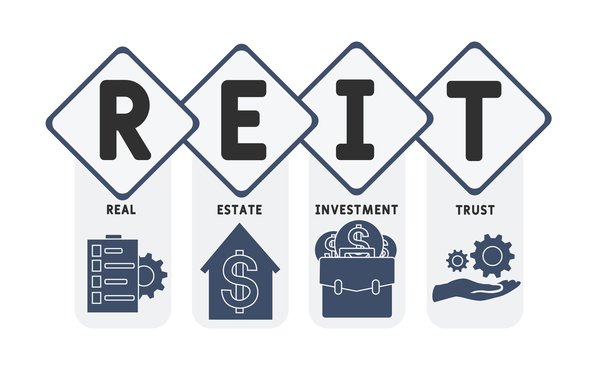Investing in real estate can be risky and complicated. Rather than invest directly in real estate by buying actual property, some investors instead opt to put money into REITs. REITs, or real estate investment trusts, are companies that own and operate income-producing real estate.
You can buy shares of an equity REIT or a mortgage REIT, though equity REITs tend to be more popular among investors. Equity REITs are real estate companies that purchase commercial properties and rent them out in order to generate income. Equity REITs are a good choice for investors who want a piece of the commercial real estate action without actually having to go out and buy property.

How equity REITs work
Purchasing shares of an equity REIT isn't so very different from buying shares of a publicly traded company's stock. Equity REITs acquire commercial properties that run the gamut from shopping centers to hotels to office complexes to apartments. The goal in acquiring these properties is to generate income by collecting rent from tenants and businesses who lease the space. Some equity REITs are diversified in that they own different types of properties, while others are more specialized. An equity REIT might, for example, focus solely on hotels, while another might focus solely on shopping malls.
Once they've covered the expenses associated with running their properties, equity REITs must pay at least 90% of the income they collect to their shareholders as dividends.
Equity REITs versus mortgage REITs
Mortgage REITs work similarly to equity REITs, but they invest in mortgages instead of physical properties. Equity REITs profit by generating rental income from the properties they operate, while mortgage REITs profit by selling mortgages and earning income from the interest on the mortgages they own. Like equity REITs, mortgage REITs are required to distribute at least 90% of their income to shareholders.
Both equity REITs and mortgage REITs may be listed on major stock exchanges, but they can also be traded privately. Of the two, equity REITs are far more common, accounting for roughly 90% of the REIT market.
Benefits of investing in equity REITS
One major benefit of investing in REITs is that they tend to offer higher dividend yields than other investments. REITs are required by the IRS to pay at least 90% of their taxable income to shareholders; they're not allowed to retain most of their profits to fuel their own growth. As such, their dividend payments tend to be high. Another benefit of investing in REITs is that they offer a degree of diversification. Those who buy REITs can add real estate to their portfolios without assuming the risk and workload of buying actual property.
Drawbacks of investing in equity REITs
Though REITs tend to offer attractive yields, there are some risks inherent in investing in them. Not all REITs trade on a public exchange, and those that don't are considered to be a fairly illiquid investment. Investors who buy shares of non-publicly traded REITs run the risk of being unable to sell off their shares quickly when they need money. Furthermore, it can be difficult to gauge the value of non-public REITs, as they don't generally provide per-share estimates until 18 months after their offerings close. Additionally, many non-public REITs come with hefty up-front fees. For these reasons, investors need to weigh all the pros and cons before investing in an equity REIT.



































